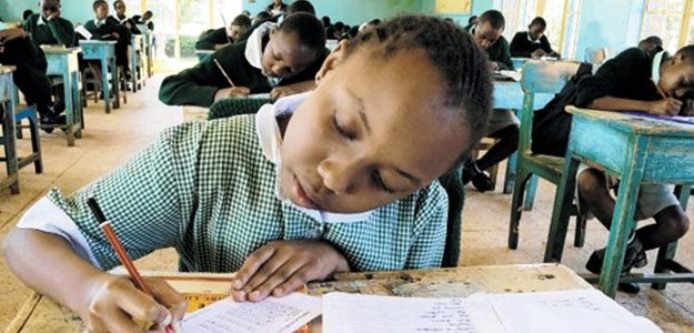Kenya Certificate of Primary Education (KCPE) and Kenya Primary School Education Assessment (KPSEA) candidates will get the results of the examinations they recently completed after Christmas.
To achieve this, the marking of KCPE Insha and Composition papers began this week and shall be completed within two weeks.
Examiners who had applied to mark the 2022 KCPE and KCSE started receiving invitation letters from the Kenya National Examinations Council (KNEC) as from last week after the KCPE and KPSEA examinations were completed on the 30th of November 2022.
The KCPE and KCSE national examinations will be marked starting from the 25th of November and the 5th of December 2022 respectively.
KCPE examiners are to mark the English Composition and Kiswahili Insha papers with the marking of these papers having taken two weeks in last year’s national examination.
However, for the Grade Six KPSEA examinations, marking will not be manual because there was no essay writing like in Composition and Insha.
Insha and Composition papers make up around 40% of the final Kiswahili and English papers respectively.
This year, 1,230,000 candidates sat for their KCPE examinations while 1,268,830 Grade 6 learners sat for their KPSEA examinations. In secondary school, 880,000 candidates sat for their KCSE examinations.
Given that most teachers are still supervising and invigilating the ongoing KCSE examinations, KNEC had changed the reporting dates of examiners to the 2nd of January.
However, Chief Examiners and assistant chief examiners coordinators are to report on the 21st of December 2022 while subject team leaders shall report on the 26th of December 2022.
During the recently concluded national examinations, KPSEA candidates sat for five multiple-choice examination papers just like their KCPE counterparts. They did Mathematics, English, Kiswahili, Integrated Science and Creative Arts and Social Studies.
On the other hand, KCPE candidates sat for their normal papers in Mathematics, English, Kiswahili, Science and Social Studies.
To ease the process of marking, Grade 6 and Class 8 students had their index and assessment numbers and names already printed on their answer sheets to make it easy for marking.
The marking of multiple choice questions will be done by modern Optical Mark Recognition (OMR) which electronically scores the papers. OMR captures marked data from the answer sheets of the candidates using specialized scanning.
The OMR machine has a dedicated scanning device that shines a beam of light on the paper. Contrasting reflection at predetermined positions on a page is used to detect marked areas as they reflect less light than the blank areas of the paper.
The new machines mark the papers in batches of 100 and 200 sheets. The new technology has made the process easier since the previous machines took hours to complete the same tasks.
While KCPE results will be used to grade learners to determine the selection of schools, KPSEA examinations will not be used for this. This is because Grade Six learners are to be domiciled in primary schools hence no need for placement.
This is in line with the recommendations from the Presidential Working Party for Education Reforms (PWPER). Instead, KPSEA will be used as a tool to monitor learning progress and provide feedback that will inform education stakeholders on areas that need intervention.
The marking of the national examinations has not always been a smooth sailing event with a standoff having been witnessed between teachers and KNEC over teachers’ pay or delay of payments.
The Kenya Union of Post-Primary Education Teachers (KUPPET) called on the Examiner (KNEC) to raise parking fees for each script by at least Kshs. 50 given the harsh economic situation across the country.
The teachers’ union had argued that papers like Chemistry Paper 1, Mathematics and English Paper 1 should each be paid at the rate of at least Kshs. 100. Marking of each paper is currently being paid for at the rate of between Kshs. 51 and Kshs. 58.
“Science teachers (Biology, Chemistry and Physics) need to be considered for allowances during practicals. Other practical subjects like Agriculture, Building and Construction, Music and Home Science should also be considered,” said the KUPPET Secretary General Akello Misori.



Comments are closed.